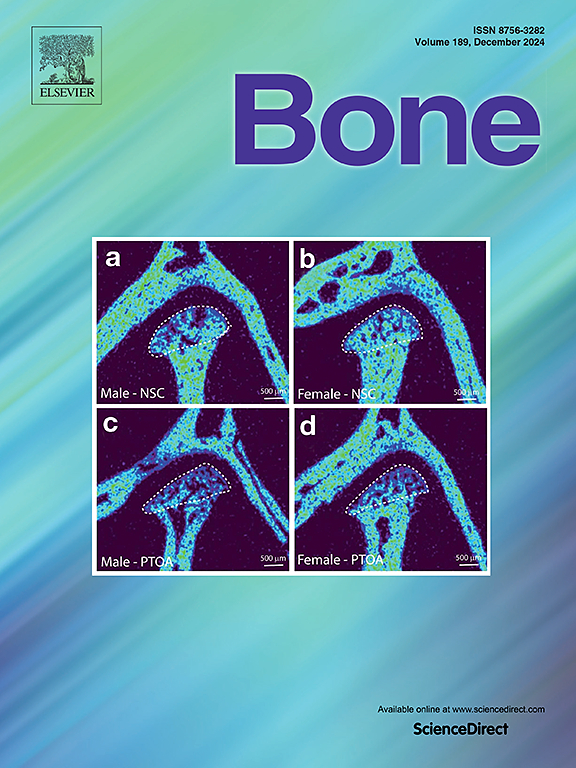AGEs (Advanced Glycation End-products) in bone come of age
IF 3.5
2区 医学
Q2 ENDOCRINOLOGY & METABOLISM
引用次数: 0
Abstract
Advanced Glycation End-products (AGEs) are seen in long-lived proteins and were not expected to accumulate in the bone that turnovers and renews itself. Here, we provide a commentary on the contrary, highlighting the Special Issue of AGEs in Bone. An outcome of hyperglycemia and increased oxidative stress, AGEs form and accumulate by altering the bone resorption and formation processes. Accumulation of various AGEs species in bone increases bone fragility through the stiffening of the collagen network and, potentially, through the changes in collagen-mineral interactions. Evidence from both preclinical and clinical studies is leading to new translational approaches wherein measurement, inhibition, or removal of AGEs show the potential to diagnose, manage, and treat bone fragility associated with multiple conditions and diseases.
骨骼中的 AGEs(高级糖化终产物)逐渐老化。
高级糖化终产物(AGEs)存在于长寿命蛋白质中,预计不会在自我更新的骨骼中积累。在此,我们将发表与此相反的评论,重点介绍《骨中的 AGEs》特刊。作为高血糖和氧化应激增加的结果,AGEs 通过改变骨吸收和形成过程而形成和积累。骨中各种 AGEs 的累积会通过胶原蛋白网络的僵化以及胶原蛋白与矿物质相互作用的潜在变化增加骨的脆性。临床前研究和临床研究的证据正在促成新的转化方法,其中 AGEs 的测量、抑制或清除显示出诊断、管理和治疗与多种情况和疾病相关的骨脆性的潜力。
本文章由计算机程序翻译,如有差异,请以英文原文为准。
求助全文
约1分钟内获得全文
求助全文
来源期刊

Bone
医学-内分泌学与代谢
CiteScore
8.90
自引率
4.90%
发文量
264
审稿时长
30 days
期刊介绍:
BONE is an interdisciplinary forum for the rapid publication of original articles and reviews on basic, translational, and clinical aspects of bone and mineral metabolism. The Journal also encourages submissions related to interactions of bone with other organ systems, including cartilage, endocrine, muscle, fat, neural, vascular, gastrointestinal, hematopoietic, and immune systems. Particular attention is placed on the application of experimental studies to clinical practice.
 求助内容:
求助内容: 应助结果提醒方式:
应助结果提醒方式:


